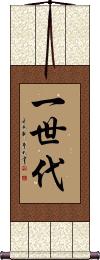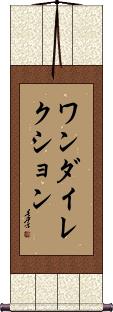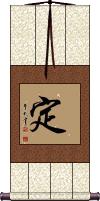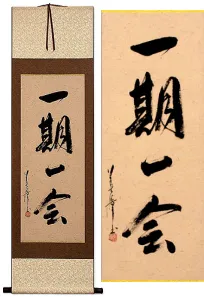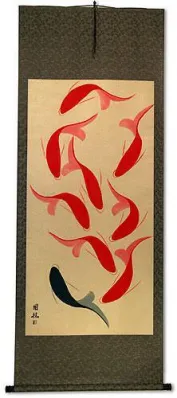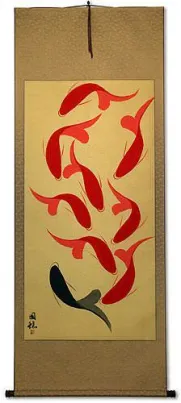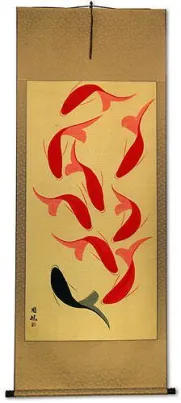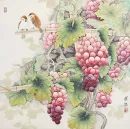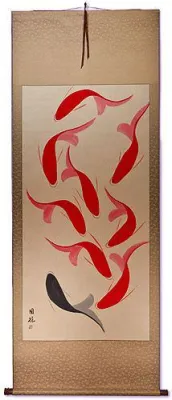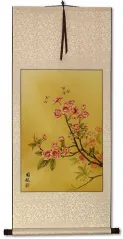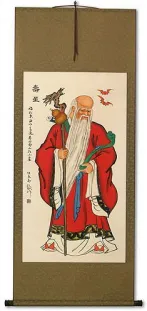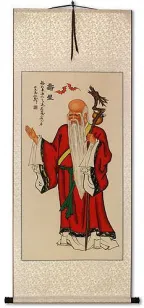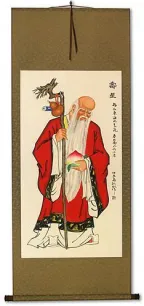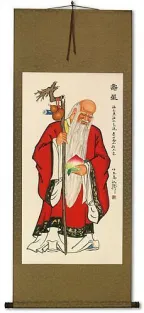Many custom options...
And formats...

One Direction in Chinese / Japanese...
Buy an One Direction calligraphy wall scroll here!
Personalize your custom “One Direction” project by clicking the button next to your favorite “One Direction” title below...
One Direction
一世代 is a way to write “One Direction” in Chinese, referring to the British-Irish boy band.
They are commonly referred to as “1D” in Japan and China (no Chinese characters for that).
This title does not exactly mean “one direction.” It's closer to “one generation,” “one era,” or “one world.”
One Direction
ワンダイレクション is a way to write “One Direction” in Japanese Katakana, referring to the British-Irish boy band.
They are commonly referred to as “1D” in Japan and China (no Japanese Kanji for that).
This title sounds like “One Direction” using Japanese sounds. Unlike Japanese Kanji words, this does not have any meaning, just pronunciation.
Note: Because this title is entirely Japanese Katakana, it should be written by a Japanese calligrapher.
Samadhi
定 is the single-character way to express the idea of Samadhi in Chinese and Japanese.
A single-character title like this is open to a lot of interpretation. So 定 can mean to set, to fix, to determine, to decide, to order, certainly, truly, settle, or compose the mind.
In the Buddhist context, this means “Perfect absorption of thought into the one object of meditation,” “The mind fixed in one direction,” “Internal state of imperturbability or tranquility,” or “Exempt from all external sensations.”
Courage to do what is right
見義勇為 means the courage to do what is right in Chinese.
This could also be translated as “Never hesitate to do what is right.”
This comes from Confucian thought:
Your courage should head in an honorable direction. For example, you should take action when the goal is to attain a just result as, without honorable intent, a person’s gutsy fervor can easily lead them astray.
One who flaunts courage but disregards justice is bound to do wrong; someone who possesses courage and morality is destined to become a hero.
Some text above paraphrased from The World of Chinese - The Character of 勇
See Also: Work Unselfishly for the Common Good | Justice | Bravery
Push or Knock
To weigh one's words
During the Tang Dynasty, a man named Jia Dao (born in the year 779), a well-studied scholar and poet, went to the capital to take the imperial examination.
One day as he rides a donkey through the city streets, a poem begins to form in his mind. A portion of the poem comes into his head like this:
“The bird sits on the tree branch near a pond,
A monk approaches and knocks at the gate...”
At the same time, he wondered if the word “push” would be better than “knock” in his poem.
As he rides down the street, he imagines the monk pushing or knocking. Soon he finds himself making motions of pushing and shaking a fist in a knocking motion as he debates which word to use. He is quite a sight as he makes his way down the street on his donkey with hands and fists flying about as the internal debate continues.
As he amuses people along the street, he becomes completely lost in his thoughts and does not see the mayor's procession coming in the opposite direction. Jia Bao is blocking the way for the procession to continue down the road, and the mayor's guards immediately decide to remove Jia Bao by force. Jia Bao, not realizing that he was in the way, apologizes, explains his poetic dilemma and awaits his punishment for blocking the mayor's way.
The mayor, Han Yu, a scholar and author of prose himself, finds himself intrigued by Jia Dao's poem and problem. Han Yu gets off his horse and addresses Jia Bao, stating, “I think knock is better.” The relieved Jia Bao raises his head and is invited by the mayor to join the procession, and are seen riding off together down the street, exchanging their ideas and love of poetry.
In modern Chinese, this 反復推敲 idiom is used when someone is trying to decide which word to use in their writing or when struggling to decide between two things when neither seems to have a downside.
This in-stock artwork might be what you are looking for, and ships right away...
Gallery Price: $72.00
Your Price: $39.88
Gallery Price: $52.00
Your Price: $28.88
Gallery Price: $340.00
Your Price: $188.77
Gallery Price: $160.00
Your Price: $88.88
Gallery Price: $61.00
Your Price: $33.88
Not the results for One Direction that you were looking for?
Below are some entries from our dictionary that may match your One Direction search...
| Characters If shown, 2nd row is Simp. Chinese |
Pronunciation Romanization |
Simple Dictionary Definition |
定 see styles |
dìng ding4 ting jou / jo じょう |
More info & calligraphy: Samadhi(1) (See 案の定・あんのじょう) certainty; reality; actuality; (prefix noun) (2) (See 定宿) regular; permanent; (3) {Buddh} (See 三昧・さんまい・1,禅定・ぜんじょう・1) samadhi (state of intense concentration achieved through meditation); (given name) Yasushi To fix, settle. samādhi. 'Composing the mind'; 'intent contemplation'; 'perfect absorption of thought into the one object of meditation.' M. W. Abstract meditation, the mind fixed in one direction, or field. (1) 散定 scattered or general meditation (in the world of desire). (2) 禪定 abstract meditation (in the realms of form and beyond form). It is also one of the five attributes of the dharmakāya 法身, i. e. an internal state of imperturbability or tranquility, exempt from all external sensations, 超受陰; cf. 三摩提. |
方 see styles |
fāng fang1 fang hou / ho ほう |
More info & calligraphy: Phuong(1) direction; way; side; area (in a particular direction); (2) (often 私の方, あなたの方, etc.) side (of an argument, etc.); one's part; (3) type; category; (4) field (of study, etc.); (5) indicates one side of a comparison; (6) way; method; manner; means; (7) length (of each side of a square); (given name) Michi Square; place; correct; a means, plan, prescription; then, now, just. |
出 see styles |
chū chu1 ch`u chu de で |
to go out; to come out; to arise; to occur; to produce; to yield; to go beyond; to exceed; (used after a verb to indicate an outward direction or a positive result); classifier for dramas, plays, operas etc (n,n-suf) (1) coming out; going out; outflow; efflux; rising (of the Sun or the Moon); (n,n-suf) (2) attending (work); appearing (on stage); one's turn to go on; (n,n-suf) (3) start; beginning; (n,n-suf) (4) origins; background; person (or item) originating from ...; graduate of ...; native of ...; member of ... (lineage); (n,n-suf) (5) architectural member that projects outward; (n,n-suf) (6) highest point of the stern of a ship; (n,n-suf) (7) (kana only) (usu. after the -masu stem of a verb as 〜出がある or 〜出がない, etc.) amount (comprising something); amount of time or effort required to do something; (surname) De To go out, come forth, put forth; exit; beyond. |
手 see styles |
shǒu shou3 shou te て |
hand; (formal) to hold; person engaged in certain types of work; person skilled in certain types of work; personal(ly); convenient; classifier for skill; CL:雙|双[shuang1],隻|只[zhi1] (1) (occ. pronounced た when a prefix) (See お手・おて・1) hand; arm; (2) (colloquialism) (See お手・おて・3) forepaw; foreleg; (3) handle; (4) hand; worker; help; (5) trouble; care; effort; (6) means; way; trick; move; technique; workmanship; (7) hand; handwriting; (8) kind; type; sort; (9) (See 手に入る) one's hands; one's possession; (10) (See 手に余る) ability to cope; (11) hand (of cards); (12) (See 山の手・1) direction; (n,n-suf,ctr) (13) move (in go, shogi, etc.); (surname) Tezaki pāṇī; hasta; kara; hand, arm. |
一向 see styles |
yī xiàng yi1 xiang4 i hsiang ikkou / ikko いっこう |
a period of time in the recent past; (indicating a period of time up to the present) all along; the whole time (adverb) (1) (See 一向に・1) completely; absolutely; totally; (adverb) (2) (in a negative sentence) (not) at all; (not) a bit; (not) in the least; (adverb) (3) earnestly; intently; determinedly; (4) (abbreviation) (See 一向宗) Jōdo Shinshū; (surname) Hitomukai One direction, each direction; with single mind, the mind fixed in one direction undistracted; e.g. 一向淸淨無有女人 (The land of that Buddha is) everywhere pure; no women are there. |
他方 see styles |
tā fāng ta1 fang1 t`a fang ta fang tahou / taho たほう |
(noun - becomes adjective with の) (1) one (esp. of two); the other; one way; the other way; one direction; the other direction; one side; the other side; one party; the other party; (conjunction) (2) (See 一方・いっぽう・2) on the other hand other lands |
其方 see styles |
sochira(p); socchi(p); sonata; sochi そちら(P); そっち(P); そなた; そち |
(pronoun) (1) (kana only) (direction distant from the speaker, close to the listener) (See こちら・1,あちら・1,どちら・1) that way; that direction; (pronoun) (2) (kana only) (place distant from the speaker, close to the listener) there; (pronoun) (3) (kana only) (something close to the listener) that (one); (pronoun) (4) (kana only) (そちら is polite) you; your family; your company; (pronoun) (5) (kana only) (someone close to the listener) that person |
孰方 see styles |
nanizama なにざま docchi どっち dochira どちら dochi どち izuchi いずち izushi いずし izukata いずかた |
(out-dated kanji) (out-dated or obsolete kana usage) (pn,adj-no) (1) (kana only) which way; which direction; where; (2) which one (esp. of two alternatives); (3) who; (out-dated kanji) (pn,adj-no) (1) (kana only) which way; which direction; where; (2) which one (esp. of two alternatives); (3) who |
家風 家风 see styles |
jiā fēng jia1 feng1 chia feng kafuu; iekaze / kafu; iekaze かふう; いえかぜ |
(1) family tradition; (2) (いえかぜ only) (archaism) wind blowing from the direction of one's home family style |
廻向 迴向 see styles |
huí xiàng hui2 xiang4 hui hsiang ekō えこう |
(noun/participle) Buddhist memorial service; prayers for the repose of the soul The goal or direction of any discipline such as that of bodhisattva, Buddha, etc.; to devote one's merits to the salvation of others; works of supererogation. |
掉向 see styles |
diào xiàng diao4 xiang4 tiao hsiang |
to turn; to adjust one's direction; to lose one's bearings |
支配 see styles |
zhī pèi zhi1 pei4 chih p`ei chih pei shihai しはい |
to control; to dominate; to allocate (noun, transitive verb) (1) rule; domination; control; (noun, transitive verb) (2) direction; management; guidance; (noun, transitive verb) (3) control (of one's destiny, public opinion, etc.); governing; influence; sway; (noun, transitive verb) (4) {gramm} government |
滔々 see styles |
toudou / todo とうどう |
(adv-to,adj-t) (1) torrentially; swiftly flowing (water, esp. river); voluminously flowing; (2) (speak) eloquently; fluently; spout forth (a torrent of speech); (3) flood of the times (moving strongly in one direction); current of the times; (surname) Toudou |
滔滔 see styles |
tāo tāo tao1 tao1 t`ao t`ao tao tao toutou / toto とうとう |
torrential (adv-to,adj-t) (1) torrentially; swiftly flowing (water, esp. river); voluminously flowing; (2) (speak) eloquently; fluently; spout forth (a torrent of speech); (3) flood of the times (moving strongly in one direction); current of the times |
目線 see styles |
mesen めせん |
(1) (one's) gaze; direction in which one is looking; (2) point of view; standpoint; (3) line covering someone's eyes (in an edited photograph) |
矢印 see styles |
yajirushi やじるし |
(1) arrow (symbol); (2) (colloquialism) (romantic) interest (for a certain person); direction (of one's attention, etc.) |
縦横 see styles |
juuou / juo じゅうおう |
(noun or adjectival noun) (1) length and width; length and breadth; lengthwise and crosswise; vertical and horizontal; the four cardinal points; (noun or adjectival noun) (2) every direction; all directions; (noun or adjectival noun) (3) as one wishes; as one pleases; at will |
辿る see styles |
tadoru たどる |
(transitive verb) (1) (kana only) to follow (a road, path, etc.); to trace; (transitive verb) (2) (kana only) to follow (a clue, scent, tracks, plot, etc.); to trace (a route, history, family tree, etc.); to retrace (e.g. one's memory); to search; to go over; (transitive verb) (3) (kana only) to head towards (of a situation); to go in the direction of; to take (a course); to pursue (a path); to meet (a fate) |
逆行 see styles |
nì xíng ni4 xing2 ni hsing gyakkou; gyakukou / gyakko; gyakuko ぎゃっこう; ぎゃくこう |
to go the wrong way; to go against one-way traffic regulation (n,vs,vi) (1) (ant: 順行・1) backward movement; reverse movement; going backwards; retrogression; going in the wrong direction; going against (e.g. the times); running counter to; (n,vs,vi) (2) {astron} (ant: 順行・2) retrograde motion |
面々 see styles |
menmen めんめん |
each one; all; every direction |
面面 see styles |
miàn miàn mian4 mian4 mien mien menmen めんめん |
multiple viewpoints each one; all; every direction |
風頭 风头 see styles |
fēng tóu feng1 tou2 feng t`ou feng tou fuutou / futo ふうとう |
wind direction; the way the wind blows; fig. trend; direction of events; how things develop (esp. how they affect oneself); public opinion (concerning one's actions); publicity (usually derog.); limelight (personal name) Fūtou |
一方向 see styles |
ichihoukou / ichihoko いちほうこう |
(adj-no,n) one direction; unidirectional; non-interactive |
方違い see styles |
katatagai かたたがい |
(archaism) (See 方塞がり) setting off the night before one normally would have departed, travelling in a different direction, spending the night there, and leaving for one's destination in the morning (done to avoid travelling in an unlucky direction; a common practice during the Heian period) |
方違え see styles |
katatagae かたたがえ |
(archaism) (See 方塞がり,方違へ所) setting off the night before one normally would have departed, travelling in a different direction, spending the night there, and leaving for one's destination in the morning (done to avoid travelling in an unlucky direction; a common practice during the Heian period) |
Variations: |
zama; zama ざま; ザマ |
(1) (derogatory term) (kana only) mess; sorry state; plight; sad sight; (suffix) (2) (indicates direction) -ways; -wards; (suffix) (3) (after the -masu stem of a verb) in the act of ...; just as one is ...; (suffix) (4) (after the -masu stem of a verb) (See 様・さま・3) manner of ...; way of ... |
方違え所 see styles |
katatagaedokoro かたたがえどころ |
(archaism) place where one spends the night to avoid travelling in an unlucky direction |
方違へ所 see styles |
katatagahedokoro かたたがへどころ |
(archaism) place where one spends the night to avoid travelling in an unlucky direction |
百川歸海 百川归海 see styles |
bǎi chuān guī hǎi bai3 chuan1 gui1 hai3 pai ch`uan kuei hai pai chuan kuei hai |
all things tend in one direction (idiom) |
中國致公黨 中国致公党 see styles |
zhōng guó zhì gōng dǎng zhong1 guo2 zhi4 gong1 dang3 chung kuo chih kung tang |
(PRC) China Zhi Gong Party, one of the eight legally recognized minor political parties following the direction of the CCP |
Click here for more One Direction results from our dictionary
The following table may be helpful for those studying Chinese or Japanese...
| Title | Characters | Romaji (Romanized Japanese) | Various forms of Romanized Chinese | |
| One Direction | 一世代 | yí shì dài yi1 shi4 dai4 yi shi dai yishidai | i shih tai ishihtai |
|
| One Direction | ワンダイレクション | wan dairekushon wandairekushon | ||
| Samadhi | 定 | sada | dìng / ding4 / ding | ting |
| Courage to do what is right | 見義勇為 见义勇为 | jiàn yì yǒng wéi jian4 yi4 yong3 wei2 jian yi yong wei jianyiyongwei | chien i yung wei chieniyungwei |
|
| Push or Knock | 反復推敲 反复推敲 | fǎn fù tuī qiāo fan3 fu4 tui1 qiao1 fan fu tui qiao fanfutuiqiao | fan fu t`ui ch`iao fanfutuichiao fan fu tui chiao |
|
| In some entries above you will see that characters have different versions above and below a line. In these cases, the characters above the line are Traditional Chinese, while the ones below are Simplified Chinese. | ||||
Successful Chinese Character and Japanese Kanji calligraphy searches within the last few hours...
